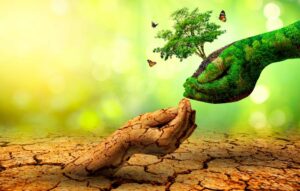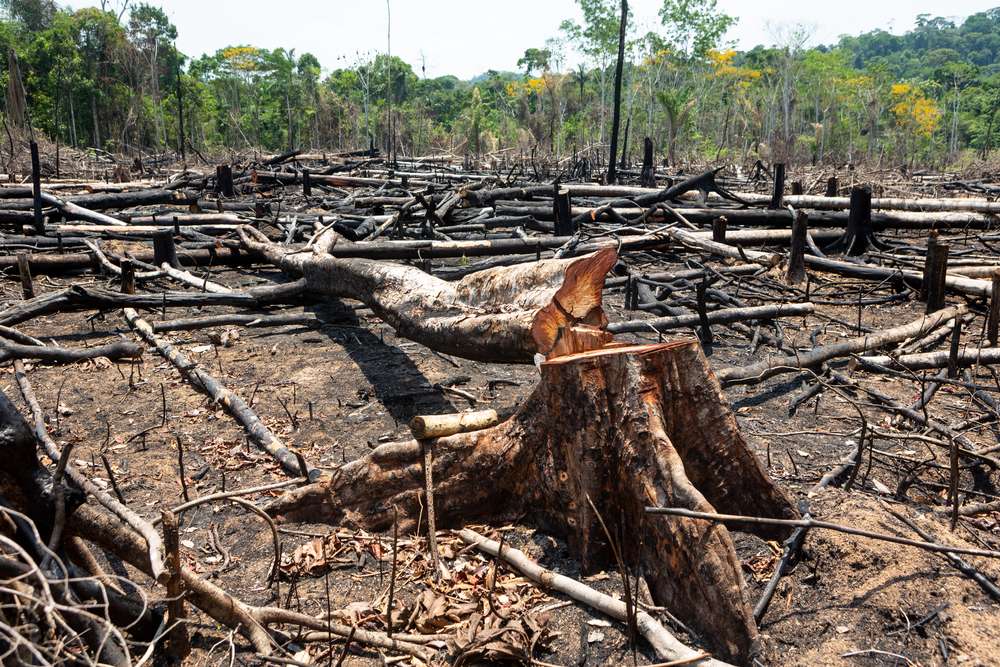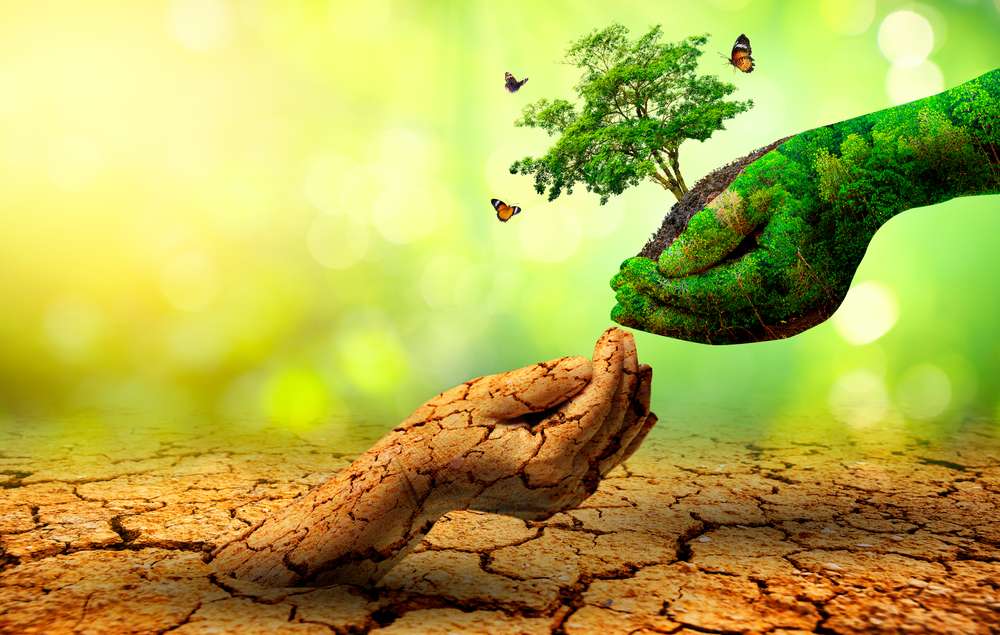1. Population Explosion: A Looming Crisis

The alarming surge in global population poses a multifaceted threat to the environment. Rapid population growth leads to the overconsumption of natural resources, deforestation, and the destruction of ecosystems. This population explosion not only exacerbates poverty and economic challenges but also puts immense pressure on the environment, causing irreversible damage to vital elements like water, air, and trees.
Addressing the Challenge: Governments and communities must prioritize family planning initiatives, education, and sustainable development to curb population growth. Implementing effective policies and creating awareness are essential steps toward fostering a balanced and sustainable coexistence.
2. Surge in CFCs: A Silent Culprit in Climate Change
The rise in Chlorofluorocarbons (CFCs) in the atmosphere is contributing to global warming and climate change. Deforestation and the reduction of forest areas play a pivotal role in this phenomenon, leading to an increase in CFCs. The consequence is a rise in global temperatures, melting polar ice caps, and elevating sea levels, posing a severe threat to coastal regions.
Mitigating the Impact: Strategies to combat CFCs include reforestation efforts, strict regulations on industrial emissions, and transitioning to sustainable energy sources. International collaboration is crucial to address this issue on a global scale.
3. Uncontrolled Waste Disposal: The Epidemic of Pollution
Unregulated waste disposal practices have turned into a global epidemic, polluting the environment and endangering human health. From open dumping to the mismanagement of industrial waste, the consequences are dire—spreading diseases, contaminating water sources, and severely affecting ecosystems.
Sustainable Waste Management: Adopting stringent waste management policies, promoting recycling initiatives, and creating awareness about responsible disposal are essential steps toward mitigating the adverse effects of waste pollution.
4. Industrial Growth vs. Environmental Preservation
The unchecked growth of industries, driven by the demand for employment and economic prosperity, poses a significant challenge to environmental preservation. The lack of proper regulations and oversight results in industrial waste contaminating water bodies, air pollution, and ecological degradation.
Balancing Growth and Conservation: Governments need to enforce strict environmental regulations on industries, ensuring responsible waste disposal and sustainable practices. Industries, in turn, should prioritize green initiatives, adopt cleaner technologies, and invest in eco-friendly production processes.
5. Emerging Viral Threats: Nature’s Response to Environmental Imbalance
The emergence of new viruses, often with devastating consequences for human health, is linked to environmental factors such as deforestation and the excessive use of toxic chemicals. The disruption of natural habitats creates a breeding ground for viruses, leading to outbreaks that can quickly turn into global health crises.
Holistic Health and Environmental Policies: Balancing industrial practices, protecting natural habitats, and implementing comprehensive health policies are essential to prevent the emergence and spread of viruses. Prioritizing the health of ecosystems contributes to global health security.
6. Deforestation: Unveiling Catastrophic Consequences
The rampant destruction of forests is a root cause of environmental degradation, contributing to increased levels of carbon dioxide and triggering natural disasters. The loss of forests disrupts the delicate balance of ecosystems, leading to irreversible ecological damage and a rise in catastrophic events.
Preserving Biodiversity: Global efforts are needed to combat deforestation, including reforestation programs, sustainable logging practices, and protected area initiatives. Preserving biodiversity is not only crucial for ecological stability but also for the well-being of humanity.

7. Ocean Pollution: Threatening Marine Life and Ecosystems
The extensive pollution of oceans poses a severe threat to marine life and ecosystems. From plastic waste to industrial runoff, our oceans are bearing the brunt of human activities, leading to habitat destruction, species endangerment, and the contamination of seafood.
Safeguarding Marine Environments: International agreements, strict regulations on plastic usage, and sustainable fishing practices are imperative to protect our oceans. The conservation of marine ecosystems is crucial for maintaining biodiversity and ensuring the livelihoods of communities dependent on marine resources.
8. Soil Degradation: A Silent Crisis Beneath Our Feet
Unsustainable agricultural practices, deforestation, and industrial activities contribute to soil degradation, jeopardizing food security and ecosystem health. Loss of topsoil, soil erosion, and contamination with harmful chemicals pose significant challenges for sustainable agriculture.
Sustainable Farming Practices: Implementing sustainable agricultural practices, promoting soil conservation methods, and reducing the use of harmful agrochemicals are vital steps to address soil degradation. Balancing agricultural productivity with environmental stewardship is essential for long-term food security.
9. Loss of Biodiversity: A Threat to Ecosystem Resilience
The ongoing loss of biodiversity, driven by habitat destruction, climate change, and pollution, poses a severe threat to the resilience of ecosystems. The extinction of species disrupts ecological balance, weakens ecosystem services, and diminishes the planet’s overall health.
Conservation Efforts: Conservation initiatives, protected areas, and international cooperation are critical for preserving biodiversity. Restoring habitats, combating illegal wildlife trade, and addressing the root causes of biodiversity loss are key components of a comprehensive conservation strategy.
10. Climate Change: A Global Crisis Requiring Immediate Action
The overarching challenge of climate change, fueled by greenhouse gas emissions, deforestation, and unsustainable practices, is altering the Earth’s climate at an unprecedented rate. Rising temperatures, extreme weather events, and sea-level rise pose existential threats to communities, biodiversity, and global stability.
Urgent Climate Action: Immediate and comprehensive efforts to reduce greenhouse gas emissions, transition to renewable energy sources, and adapt to the changing climate are essential. Global cooperation, ambitious policy measures, and individual actions are crucial for mitigating the impacts of climate change and securing a sustainable future.
In Conclusion: A Call for Global Action
The current state of environmental affairs demands immediate and concerted action from all sectors of society. Governments, as primary stewards of public welfare, must enact and enforce robust environmental policies that prioritize sustainability and conservation. This includes stringent regulations on emissions, waste management, and industrial practices. Simultaneously, industries play a pivotal role in shaping a sustainable future. By adopting eco-friendly technologies, reducing carbon footprints, and promoting responsible production processes, businesses can align economic growth with environmental preservation.
At an individual level, the call for action resonates through daily choices and lifestyle decisions. Embracing sustainable practices, such as reducing single-use plastic, conserving energy, and supporting eco-conscious products, contributes to a collective impact. Education and awareness campaigns are crucial to inspire widespread behavioral change, fostering a global mindset of environmental responsibility. It is a shared commitment to safeguarding our planet for current and future generations, emphasizing the interdependence of environmental, social, and economic well-being.
This call for action is not just a plea for change; it is an imperative to redefine our relationship with the environment. It’s an opportunity for innovation, collaboration, and resilience in the face of unprecedented environmental challenges. By recognizing the intrinsic connection between a thriving planet and the prosperity of its inhabitants, we pave the way for a sustainable, harmonious future. Only through united efforts can we navigate the complexities of our interconnected world and ensure a legacy of environmental stewardship for generations to come.
